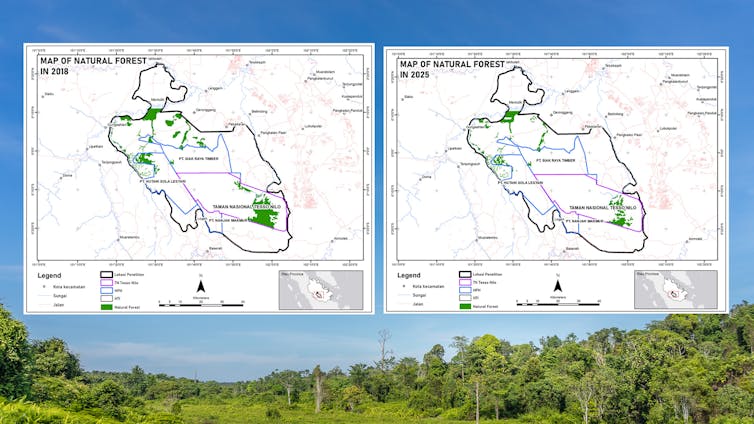APAC FIs to spend USD83 million on average on new fraud prevention technology – GBG research
- Written by GBG
Faced with heightened digital disruption and growing sophisticated fraud typologies, financial institutions across APAC rethink how to future-proof fraud prevention
SINGAPORE - Media OutReach[1] - 15 October 2020 - GBG[2] (AIM:GBG), the global technology specialist in fraud and compliance management, identity verification and location data intelligence, has today launched its inaugural report across APAC, titled "Future-proofing Fraud Prevention in Digital Channels: APAC FI Study[3]", which analyses the impact of fraud on financial institutions (FIs) across six countries and the technologies they are planning to invest in to mitigate today's fraud threats and scale to address emerging fraud patterns.
The report found FIs in APAC projecting an average estimated budget of USD83.3 million to purchase new fraud prevention technology in 2020-2021. The three countries with the highest average estimated fraud budgets are Thailand at USD95.4 million, China at USD91.4 million and Indonesia at USD88.9 million.

The research unveils trends and priorities of APAC FIs in the digital age, key fraud and risk management challenges in digitalisation, and technology investment plans to enable fraud insulated digital products and channels.
According to the report, instant gratification for finance and banking services is seeing greater demand and rollout by financial institutions in APAC, with 31% of FIs planning for instant bank account applications and instant loans, and 29% of FIs planning rollouts of instant credit cards. Furthermore, financial products like e-wallets are becoming a hygiene factor for 90% of financial institutions as they look to expand their digital channels and deliver superior customer experiences.
As FIs vie for digital confidence with their target consumers, 66% of respondents cited end to end fraud management platform readiness as a key differentiation to driving preference. However, only 6% have an existing implementation of an integrated end to end fraud and compliance platform solution, and vertical silos are still seen in 43% of APAC financial institutions and are most prevalent in digital banks. Upgrading to fraud management platform solutions is also a work in progress for 57% of FIs and almost 50% have planned investment to upgrade their digital onboarding fraud solutions.
The interest in new segments beyond the traditional white- and blue-collared workforce is also apparent. The unbanked segment has pivoted to be a mainstream focus as fraud technology advances, with almost a third of respondents planning to access the unbanked (32%) and underbanked (31%).
June Lee, APAC Managing Director of GBG commented, "Looking at 2020-2021, the COVID-19 pandemic will continue to push people and businesses to take digital-first approaches to financial transactions. From our research, e-wallet, instant financial services, mobile and app banking are going mainstream rapidly, which make it urgent for FIs to take innovative and proactive measures to future-proof against escalating digital financial crimes. The pandemic is creating a lot of uncertainty, but the majority of FIs in APAC recognise that an end to end fraud management platform is strategic to differentiating themselves from the highly disruptive landscape they are playing in and would be a springboard to scale fraud prevention and securing digital trust with customers."
Financial Crimes 4.0[4], a term coined by GBG, is a mega risk trend covering the heightened complexity and growing volume of emerging financial crime arising from the state of hyperconnectivity and data deluge in today's Industry 4.0. This includes the boom in digitally connected devices, internet of things (IOT), and online social sharing, where these rapid changes have opened new access points and vulnerabilities that are being harnessed by sophisticated, malicious actors with speed and scale.
Respondents recognised all fraud typologies are on the rise, with social engineering crimes, in particular to scams, having a higher projection. Respondents believe that they require stronger endpoint threat prevention solutions to work across the onboarding and transaction customer journey. The need for enhanced data intelligence to obtain a better 360 view of a customer is also seeing an uptick with more than 50% of the respondents planning to invest in the ability to ingest new data in 2020-21.
Chee Leong Chin, APAC Chief Technology Officer of GBG, added, "The proliferation of personally identifiable information (PII) is making consumers increasingly vulnerable and susceptible to fraud and identity crimes. Meanwhile, customer expectations around instant access to an increased variety of digital financial services and digital safety assurance in transacting online are also skyrocketing. GBG continues to innovate and be ahead of market needs with its tech stack ranging from end to end fraud platforms, to pre-emptive fraud detection like machine learning and data intelligence from best in class players across identity proofing, mobile and IP assessment, cyber threats, credit risk and location intelligence."
GBG collaborated with The Asian Banker to survey 324 financial institutions in six key Asia-Pacific markets including Australia, China, Indonesia, Malaysia, Thailand and Vietnam.
For more insights into the research, please join GBG's "Future-proofing Fraud Prevention for Digital Channels: APAC FI Study" webinar on 21 October[5].
For more information about GBG's range of solutions in APAC, click here[6]. To view GBG recent awards and achievements, visit us here[7].
To access the series of Future-proofing Fraud Prevention in Digital Channels reports, visit:
References
- ^ Media OutReach (www.media-outreach.com)
- ^ GBG (www.gbgplc.com)
- ^ Future-proofing Fraud Prevention in Digital Channels: APAC FI Study (hubs.ly)
- ^ Financial Crimes 4.0 (www.gbgplc.com)
- ^ "Future-proofing Fraud Prevention for Digital Channels: APAC FI Study" webinar on 21 October (hubs.ly)
- ^ click here (www.gbgplc.com)
- ^ visit us here (www.gbgplc.com)
Authors: GBG
Read more https://www.media-outreach.com/release.php/View/50751#Contact





